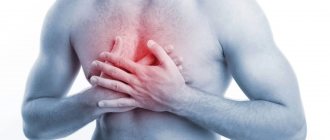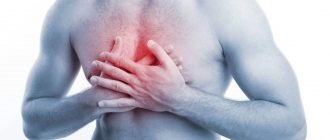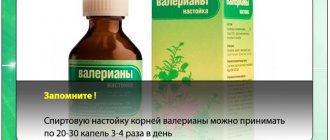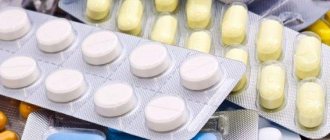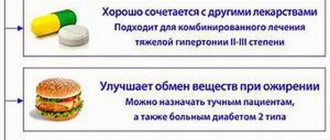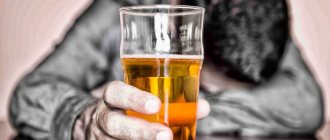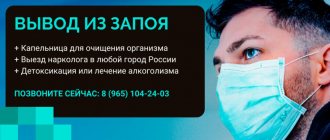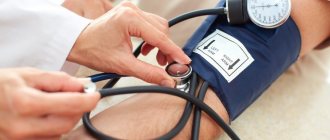Content:
- Alcohol and blood vessels
- Signs
- What to do
- Drug therapy
- conclusions
People who abuse alcohol are more likely to suffer from hypertension than from hypotension. But after binge drinking, blood pressure can behave unpredictably, including falling below the individual norm, which is manifested by drowsiness, apathy, weakness, dizziness and other symptoms. A decrease in pressure is no less dangerous than an increase. To normalize the condition, a competent approach is required, and, if necessary, medical assistance.
What drinks lower blood pressure
White wine and cognac are considered blood pressure-lowering drinks. Of course, this is not always true, since the result is influenced by the compatibility of drinks, a possible adverse reaction from alcohol, low-quality alcohol will not only lower blood pressure, but also provoke consequences close to death.
A person’s condition is influenced by the dose that was drunk the day before, since with a hangover the body’s reaction is different.
A reliable fact that helps answer whether alcohol increases or decreases blood pressure is the acceleration of the heartbeat due to ethanol entering the blood. As a result, the pressure increases.
But there are doses that reduce blood pressure - as mentioned above, this can be achieved by making coffee with cognac. This will dilate blood vessels and lower blood pressure. This property of cognac is presented by some as proof that alcohol is even beneficial for hypertension. However, this opinion is not true.
Firstly, if you have hypertension, you need to take the pills prescribed by your doctor, and whether you can drink alcohol with antihypertensive drugs is stated in the instructions for them. Secondly, only a doctor has the right to say whether it is possible to drink alcohol with hypertension, knowing the health of his patient. Thirdly, even if alcohol in the form of cognac is allowed for hypertension, it is a preventive 30 g per day and no more. And then - a doctor must allow alcohol at high blood pressure, even in such small doses.
Alcohol and blood vessels
The consumption of ethanol-containing products is accompanied by a moderate increase in blood pressure. According to research, on average, the numbers increase by 5–10 mm Hg. Art. In patients with hypertension, the changes are more pronounced. Against the background of abuse, the elasticity of blood vessels decreases, so this option is more often observed in chronic alcoholism stages 2 and 3.
Low blood pressure after binge drinking is more typical for everyday drunkenness or stage 1 addiction. Binge becomes a trigger factor. Changes are provoked by the diuretic effect of alcohol, disturbances in water and electrolyte balance, fluctuations in the level of neurotransmitters and the toxic effect of ethanol metabolites on the heart muscle.
Alcohol stimulates blood circulation in the kidneys. More fluid passes through the organs per unit of time, which means more urine is released. A decrease in the volume of circulating blood leads to a decrease in pressure on the walls of blood vessels. Electrolytes are excreted in the urine. Activation of metabolic processes in the body leads to increased consumption of proteins. The listed compounds affect osmotic pressure. When it decreases, fluid leaves the cells into the tissues, so after heavy drinking, low blood pressure is combined with edema.
A distinctive feature of alcoholics is a predominant drop in systolic pressure while maintaining or slightly decreasing diastolic pressure. This is explained by a decrease in cardiac output due to the cardiotoxic effects of alcohol. The situation is aggravated by disruption of the production of neurotransmitters in the brain due to the influence of ethanol breakdown products with subsequent changes in the functioning of the vasomotor center.
Lack of sleep, physical and emotional stress, and depression after heavy drinking play a certain role in the development of hypotension. Sometimes the pressure drops sharply when you remain in a horizontal position for a long time.
After withdrawal from withdrawal, how to restore the body after binge drinking?
This is a matter not only of time, but also of adequate measures to treat alcoholism. It is difficult to imagine that after prolonged alcohol abuse, quitting it will pass without leaving a trace on the body. Indeed, in addition to purely physiological recovery and treatment of concomitant diseases, psychological and social rehabilitation of the patient is necessary.
Without the help of a qualified psychiatrist-narcologist, this problem is almost impossible to solve. Its main task is to develop in the patient a persistent desire to overcome his addiction and prevent repeated alcoholization of the body. The influence on the patient can be carried out in the form of an individual conversation, hypnotic suggestion or group classes. Once motivated to give up alcohol, it will be much easier for the patient to follow all the doctor’s recommendations for a healthy lifestyle and restoration of physical potential.
Signs
Symptoms vary depending on the magnitude of the drop in blood pressure, the general condition of the body and its compensatory capabilities. Typical manifestations are:
- weakness, drowsiness, “dullness”, “cotton head”;
- indifference or, on the contrary, emotional instability;
- tachycardia;
- shortness of breath, worsening with physical exertion;
- pallor, increased sweating;
- dizziness, which increases when moving from a horizontal to a vertical position;
- pre-fainting states, fainting, especially in stuffy and crowded conditions, inability to take a comfortable position, prolonged standing;
- pressing or bursting pain with an epicenter in the frontal or temporal region;
- thermoregulation disorders.
High blood pressure the next day
Most often, a person feels an increase in blood pressure the next morning after drinking alcohol. Characteristic symptoms of a hangover and signs of hypertension occur. If the condition is not critical, then you can try to reduce the pressure yourself at home, but only after consulting a doctor. For this purpose, medications are used, often in combination with traditional recipes.
You should also pay close attention to what you should not do to alleviate the condition:
- take hot baths, visit a sauna or steam bath;
- drink strong tea or coffee;
- eat too much (especially fried, spicy or salty foods).
To quickly cope with poor health, it is useful to be in a well-ventilated area, drink enough plain clean water, eat light food, and do not overeat. In this case, the patient is shown rest and good sleep. Physical activity, as well as any travel, should be excluded.
Medicines
Most people are interested in how to lower blood pressure with medications. After all, this is the most familiar, as well as the simplest way to combat any ailments.
The list of drugs approved for self-use is not too long. But these medications should also be used with caution , after consulting with a specialist.
The action of the drugs is aimed at relieving vascular spasms, thinning the blood, eliminating symptoms of intoxication, and preventing dehydration. Most commonly prescribed medications:
- No-shpa, Papaverine - restore arterial tone, relieve spasms;
- Aspirin – thins the blood and improves blood flow;
- Mexidol, Piracetam - improve cerebral circulation;
- Furosemide, Torsid - dilate blood vessels, reduce swelling;
- Analgin, Paracetamol - relieve headaches;
- Capozide, Adelfan - normalize blood pressure;
- Magnesium sulfate – restores sleep, relieves swelling and headaches;
- Alka-Seltzer, Zenalk, Piel-alco - fight hangover syndrome, reduce intracranial pressure, and restore strength.
When using medications, you need to take into account all contraindications and possible side effects, strictly adhere to dosages , without exceeding them. It is also forbidden to drink alcohol, in any form, during treatment with drugs.
Folk recipes
If the next day after drinking alcohol, your blood pressure increases and its level does not exceed the permissible values, you can try to cope with the help of folk remedies. There are many of them:
- Beetroot juice with honey . This is a fairly effective remedy that quickly helps reduce indicators. Take a few root vegetables, wash them well, peel them, and squeeze the juice out of them. Keep the resulting juice in the refrigerator for at least four hours, then add a tablespoon of natural honey to one glass of juice and stir until completely dissolved. Fresh beet juice can cause vasospasm, and the opposite effect will be obtained, so it is important to follow the recipe and not use the juice immediately after receiving it. Take the drug twenty minutes before meals, one-third of a glass three times a day. Beetroot juice should not be taken at the same time as medications that lower blood pressure, as this can cause severe hypotension.
- Herb tea . Mix hawthorn, mistletoe, cucumber, and motherwort in equal proportions. Pour one tablespoon of the mixture into a glass of boiling water, leave for fifteen to twenty minutes, strain. Drink one glass after meals.
- A decoction of lingonberry leaves . Pour two tablespoons of dry leaves into half a liter of boiling water, leave for one hour, then strain. Take half a glass three times a day before meals.
- A decoction of rosehip and hawthorn . Mix twenty grams of dry berries and add a glass of water. Boil for half an hour over low heat, squeeze out the berries, strain the broth, then add hot water to the original amount. Take one tablespoon three times a day.
- Nut mixture . Mix one glass of chopped walnut kernels with one glass of honey, add twenty grated apricot kernels and the juice of three lemons. Mix everything well and take one tablespoon before meals.
- Viburnum drink . Pour one tablespoon of viburnum berries with half a glass of hot water, simmer for ten minutes in a water bath, then strain and bring the volume to a glass. Drink in small portions throughout the day.
What to do
Despite the ability of alcohol to increase blood pressure, you should not have a hangover in this situation; it may get worse. What to do with low blood pressure after binge drinking depends on the circumstances. If the condition worsens slightly, you can try to solve the problem yourself. Treatment at home is possible with normal initial pressure, situational reduction in numbers to 80/50 mm Hg. Art. and no fainting.
The main reason for a drop in blood pressure after drinking alcohol is a lack of fluid in the body. It will not be possible to replenish it with ordinary water - due to a lack of electrolytes, it will quickly be excreted through the kidneys or pass into the tissues, which will lead to worsening edema. To restore the water-electrolyte balance, use non-carbonated alkaline mineral water and special pharmaceutical-grade rehydration solutions (Rehydron and analogues).
You should not rely on coffee - this drink not only has a hypertensive effect, but also increases urination, therefore, it can worsen dehydration, which will lead to a repeated decrease in blood pressure. Easily digestible nutritious food will help replenish energy resources: weak meat broth, cottage cheese, fermented milk products. When choosing, you should listen to your body, but do not allow it anything fatty, spicy or fried.
Once you feel better, you can move around. You shouldn’t give an intense load - the body is not ready for it. It is better to do a light workout or take a leisurely walk in a quiet place. Physical activity increases the level of adrenaline, which, in turn, improves vascular tone.
How to restore health after drinking alcohol in the first stage of alcoholism?
First of all, a person must realize that he is becoming psychologically dependent on alcohol and want to get rid of this addiction. The first signs, for example, may be the following:
- Regular Friday alcoholic parties with colleagues. Since Monday you have been waiting for Friday in anticipation of “great and deserved by righteous labors” relaxation.
- The habit of having lunch on weekends with a glass of vodka or a glass of wine, before, during and after the meal.
- Loss of interest in favorite activities, for example, an album with stamps ends up abandoned on the mezzanine, a collection of coins turns into just collecting some pieces of iron, and a walk with a devoted dog becomes burdensome. After all, they have an alternative when pleasure is provided by such a coveted dose of alcohol.
- Preferring a family walk to garage get-togethers in a drinking company.
- Irritation from asking your family to do something when you have just relaxed after drinking a bottle of beer and enjoying watching TV or “hanging out” on your smartphone.
- Psychological discomfort in a sober state.
There are many signs of psychological addiction. The main thing is not to brush them aside, but to seriously analyze the changes in your behavior and habits. Only after this is it possible to make a firm decision to give up alcohol and never again succumb to provocations to drink in company with or without reason.
Since at the 1st stage of addiction, alcohol has not yet become a physiological need and withdrawal symptoms are not observed when quitting it, recovery will mainly affect the mental sphere of a person and certain functional disorders of the intestines, liver, pancreas, and vegetative-vascular disorders.
A psychiatrist-narcologist will help stop at this stage of alcoholism, who will lead the patient to the realization that he is becoming an alcoholic, but also motivate him to completely give up alcohol. At the same time, he will also tell you how to quickly restore the body after alcohol and develop an individual treatment regimen using optimal psychological methods and gentle medications (valerian, Afobazol, glycine).
Drug therapy
It is better to use medications as prescribed by a doctor. Self-administration can lead to unpredictable consequences - only a specialist knows how to stabilize blood pressure after heavy drinking, taking into account all the factors affecting the functioning of the body. If you experience fainting, prolonged weakness, severe shortness of breath and palpitations, you should seek medical help.
Treatment includes infusions of colloidal and saline solutions, the use of caffeine, tranquilizers, nootropics, glucocorticoids, and vitamin complexes. Timely initiation of therapy helps to quickly improve the condition and avoid the development of severe complications - cardiogenic shock, cerebral ischemia.
Increased blood pressure immediately after drinking alcohol
When drinking alcoholic beverages in large quantities, you must be prepared for a sudden increase in blood pressure.
In this case, it is necessary to act according to the current situation:
- If there is a sharp and severe increase in blood pressure, it is best to immediately call an ambulance, otherwise the situation is fraught with death. A dangerous jump is one in which the difference from normal everyday pressure is more than 25 percent.
- If the pressure has increased slightly, but these sensations cause discomfort, then you can take magnesium sulfate. It will help quickly bring blood vessels back to normal and stabilize blood pressure.
Doctors identify several symptoms by which the body signals an increase in blood pressure:
- covering the skin with red spots;
- the appearance of shortness of breath, a sharp lack of oxygen;
- increased heart rate and pulse;
- noises, whistling in the ears;
- multiple glares before the eyes;
- Strong headache;
- cutting pain in the chest;
- lethargy, feeling of weakness, physical depression;
- in rare cases, loss of consciousness is possible.
It must be remembered that even with a slight increase in blood pressure, one cannot hope that hypertension will go away on its own.
Now hypertension can be cured by restoring blood vessels.
conclusions
A decrease in blood pressure after binge drinking is more typical for the initial stages of abuse. If symptoms appear, you need to use a tonometer, assess your condition and, if the changes are moderate, carry out therapy at home. If restorative measures are ineffective or your health is progressively deteriorating, you should seek medical help. Do not forget about the root cause of hypotension - problems with alcohol. After recovery, it is recommended to make an appointment with a narcologist to choose the optimal treatment option for addiction.
What drinks increase blood pressure
When asked which alcohol increases blood pressure monitor readings, the answer is champagne, beer and wine. But this is not an exact answer, since the same cognac, which lowers blood pressure in small doses, can cause hypertension when consumed in excess of 80 ml. It is impossible to predict what kind of alcohol you can drink with high blood pressure so as not to cause a jump in blood pressure. Any alcohol affects the heart and blood vessels, and toxins impair the functions of the kidneys, nervous system, and liver.
People with hypertension need to be extremely careful during feasts, since increased blood pressure threatens heart complications. And if your blood pressure suddenly rises sharply due to a hangover, what to do is to ask your doctor, not your friends. Especially if the pressure surge exceeds 10 mm from normal. Before the ambulance arrives, the victim must be seated, since in a lying position the pressure increases and breathing is impaired.
If this is not the first attack of pressure, you can give the usual drug prescribed to the patient by a doctor. But other medications cannot be given before the ambulance arrives. An exception is nitroglycerin - it can be placed under the tongue if there is pain in the heart area.
The room needs to be ventilated; a bottle of hot water can be placed at the victim’s feet. The patient needs to be reassured to eliminate the panic attack.
Doctors have long proven that alcohol-containing products have an extremely negative effect on human health.
This is due to the fact that alcohol is an excellent solvent, causes an irreparable blow to vital organs and can cause addiction if consumed regularly.
Letters from our readers
My grandmother’s hypertension is hereditary - most likely, I will have the same problems as I get older.
I accidentally found an article on the Internet that literally saved my grandmother. She was tormented by headaches and had a repeated crisis. I bought the course and monitored the correct treatment.
After 6 weeks she even started talking differently. She said that her head no longer hurts, but she still takes pills for blood pressure. I am sending a link to the article
